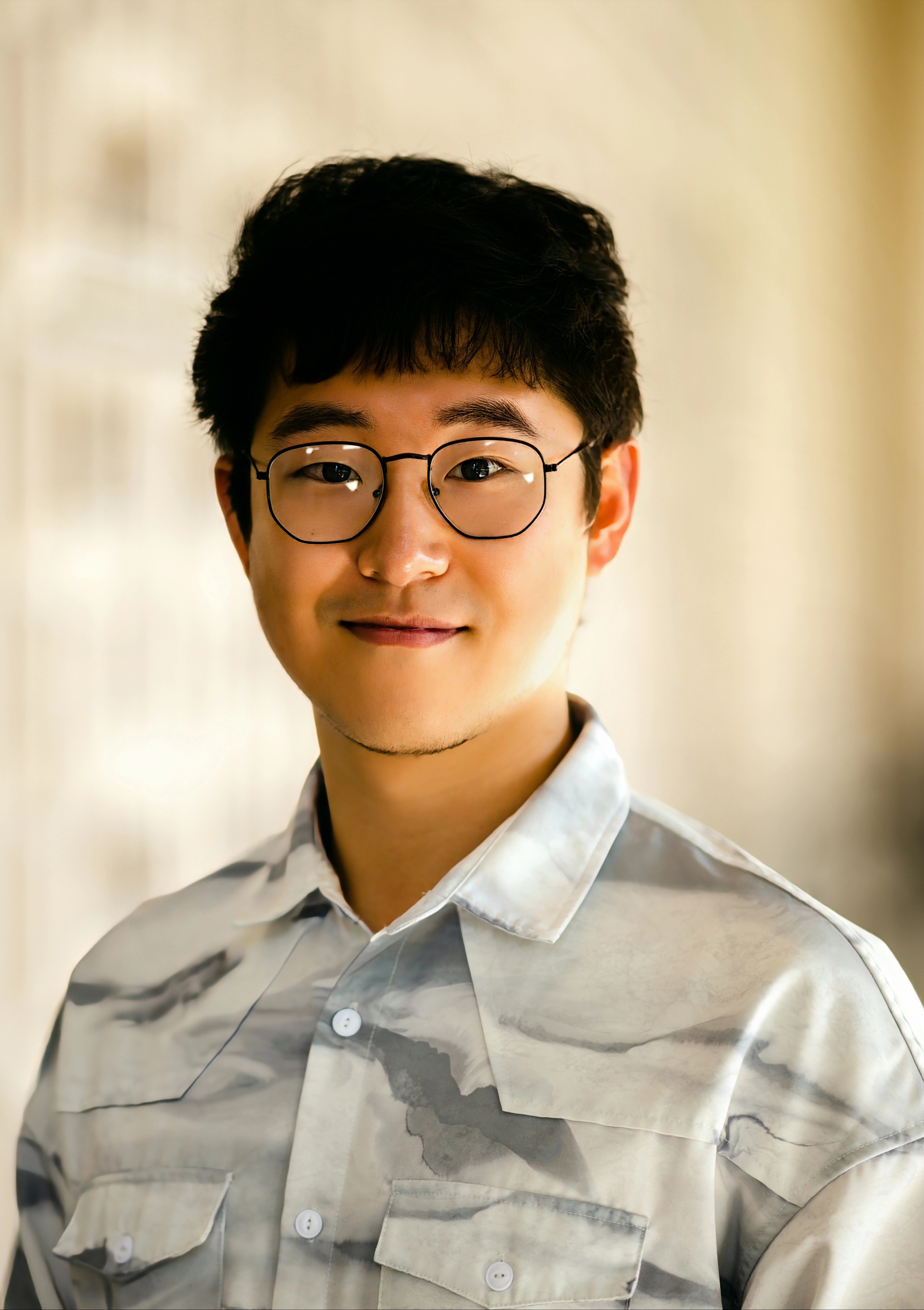
The School of Molecular & Cellular Biology and Department of Cell & Developmental Biology are pleased to welcome Boxuan Zhao as an assistant professor of cell and developmental biology. He will join us in November 2023 from Stanford University, where he completed his postdoctoral research. We recently spoke with him about his research and teaching interests and how he spends his time outside the lab.
Tell us about your lab and your research focus, including how you came to choose or specialize in this area.
The research focus of my lab is our brain – we center on the development and application of high-throughput technologies to study the molecular mechanisms of brain organization and function. Specifically, our team will track over time the mammalian brain's connectomic (brain-wide neuronal connection dynamics), transcriptomic, proteomic (spatiotemporal distribution of RNAs and proteins), and epitranscriptomic (dynamic RNA modifications) landscapes under different brain states. Our lab will combine the interdisciplinary strengths of chemical biology, bioengineering, genetics, and neuroscience and investigate the relationship between mammalian brain structure and function, including memory formation and neurodegeneration. Through developing and applying quantitative methods at the systemic, cellular, and molecular levels, our ultimate goal is to contribute to the development of novel therapeutic interventions for brain disorders in humans.
These research interests originated from my childhood fascination of the brain, as I would often wonder things like why we need to sleep or how we memorize experiences. Through studies and research later, I realized that new technologies are needed to open the doors to study complex systems such as the brain, and I have chosen the path to integrate different disciplines to create enabling methods for biological research.
What is especially exciting about this particular area of research, at this time?
I know there is a pessimistic saying that we are born too late to explore the world and too early to explore the stars, but I think we are at the perfect timing to explore another frontier, our brain. This intricately built organic machine utilizes merely 20 watts of power but can outperform the most powerful supercomputers in existence. Understanding the structure and functional mechanism of the human brain will revolutionize how we design and build the next generation of computation systems. Technology has advanced to the stage that we can dive into the molecular events occurring within the brain, monitor neuronal activities in real time, and manipulate neural circuits to alter animal behaviors. Within decades, we may achieve more wonders like mapping out the entire blueprint of the human brain, curing neurodegeneration diseases and other brain disorders, and augment our cognitive capabilities to perform more complex tasks. In fact, with the inspiring news of the first conventionally approved FDA drug for treating Alzheimer’s Disease, more exciting progresses are bound to come from translating basic research. This will require more aspiring young scientists to venture into the field, building amazing tools and making more discoveries to collectively push the frontiers forward.
What interested you the most about becoming a faculty member in the School of Molecular and Cellular Biology and the University of Illinois?
The breath and the depth of research carried out at UIUC MCB attracted me the most during my visit. Becoming a member of this stellar faculty group is one of the best decisions I have ever made. With a strong interest in technology development, my lab will thrive on interdisciplinary collaborations, and there are endless opportunities in the School of MCB and on campus, considering we have world-renowned programs in not only biology but also in chemistry, engineering, and computer science. My future team will bring together members from diverse backgrounds spanning many disciplines and collaborate in depth with colleagues addressing fundamental biology questions.
What are your teaching interests?
As an independent PI, I intend to implement my teaching philosophy of sparking students' interests and preparing them for independent study through two major efforts: facilitating early-career exposure to exploratory research and advocating for interdisciplinary training and research programs. This plan stems from my own experience, as I benefited greatly from early access to independent research during college, as well as extensive interdisciplinary training in chemistry, molecular biology, bioengineering, and neuroscience throughout my career.
For my teaching, I intend to either incorporate new modules into existing courses or create new courses that will discuss cutting-edge molecular techniques that have been developed to enable new research avenues in biology. I'd like to incorporate authentic research experiences into the course, either in the form of hands-on wet lab experiments or dry lab bioinformatic computation on real experimental datasets, which will yield tangible results and may serve as the foundation for longer-term projects in research labs. I will strive to inspire the students' genuine interest in conducting interdisciplinary studies related to their specific passions by sharing with them my enthusiasm for RNA biology, technology development, and neuroscience.
For my mentoring, I intend to provide research opportunities to early-career students (high school or first-year college students), as early exposure to scientific research can greatly increase a student's interest in pursuing a STEM career. I will attract and cultivate graduate and postdoc trainees with diverse backgrounds, interests, and mentoring needs by encouraging them to pursue their passions and ideas while ensuring that their projects are feasible and in line with their objectives. I will assist mentees in applying for internal and external funding, attending conferences and workshops, and encouraging research exchanges in order to help them expand their professional networks and ultimately become well-rounded researchers.
If any students (undergraduate or PhD) are interested in working in your lab, what’s your advice or how can they get in touch with you?
My advice is to start early! Joining a lab and carrying out independent research as a freshman in college is a defining point in my academic career, and I encourage every young student with an interest in scientific research to reach out to labs that match their interests, have a first-hand experience at cutting-edge research, and find out if a STEM career is their true passion.
If students are interested in joining my lab, definitely reach out to me via email at zbx@illinois.edu. My lab is always looking for motivated students interested in studying the brain and developing new technologies to address unique biological questions.
Tell us about someone who made a difference in your life, such as someone who sparked your interest in biology, who encouraged you to pursue a career in academia or challenged your thinking about a topic.
My undergraduate mentor is pivotal in my academic career, as he was the one who opened the door of scientific research for me during college. As the first person in my extended family to go to college, my first quarter of college was filled with self-doubt and confusion because my upbringing had not prepared me for independent college life. I was struggling with coursework because more than half of my classmates were accepted to the program through the Chemistry Olympiad competition, so the teachers frequently complied with their desires by going quickly in subjects they were familiar with, leaving other students like me confused yet afraid to speak up for fear of coming across as slow. Some of my classmates transferred to other programs, while many others, like me, sought distractions through extracurricular activities or internships unrelated to academics.
Fortunately, my path was redirected to academia when I attended a seminar given by my future undergraduate research mentor, who had just completed his postdoctoral studies at Scripps and returned to his alma mater to start his lab. I was astounded by how much fascinating life sciences research one can conduct with a chemistry background. In an email exchange after the seminar, he also strongly encouraged me to be more confident and invited me to join his new lab as the first member. I fell in love with research instantly and went on to publish the lab's first paper in my junior year. My mentor's encouragement to a befuddled freshman changed my life. I have subsequently benefited significantly from my other mentors in my career, including my graduate advisor who broadened my scope in many biological fields through extensive collaborative projects, and my postdoctoral advisors who showed me the power of new technologies opening new research avenues. I aspire to follow their footsteps and make positive impacts on future generations of scientists and help nurturing them to be successful in their career paths.
What do you like to do in your free time?
I wholeheartedly align with the unofficial motto of my alma mater, the University of Chicago - Work hard, play hard. I found pursuing one’s passion(s) outside of work not only give you some much-needed mental breaks, but sometimes also help to shape one’s scientific interests or even spark new ideas for the research.
Therefore, I have quite a few interests that I engage in my free time to shift my gear: For sports, I was an endurance runner during high school and part of the varsity swimming team in college. During graduate school, I joined the varsity triathlon team during my first year and instantly fell in love with this new “interdisciplinary sport” which is not too unsimilar to my research, and continued training to this day. In fact, I am very likely to continue a tradition from my postdoc lab to have a weekly lab group run together on campus.
Scuba diving is another great passion of mine. I have been volunteering as a scuba diving instructor at my local non-profit dive shop Learn Scuba Chicago during my graduate school. I taught over 100 students in the university pool over the years and proudly watched them passing the open water certification tests. I myself have also learned from the experts in the shop and currently hold the Master Scuba Diver certificate from the National Association of Underwater Instructors. During many of my dive trips around the world, I’ve encountered countless mind-blowing sea creatures, which fueled my obsession with marine biology. I am particularly fascinated by cephalopods including octopuses and squids. Every time my encounter with them in the ocean left me stunned by their amazing capability of camouflaging and playful behaviors, which inspires me to initiate new research directions to investigate marine animal’s neurobiology in the future.
